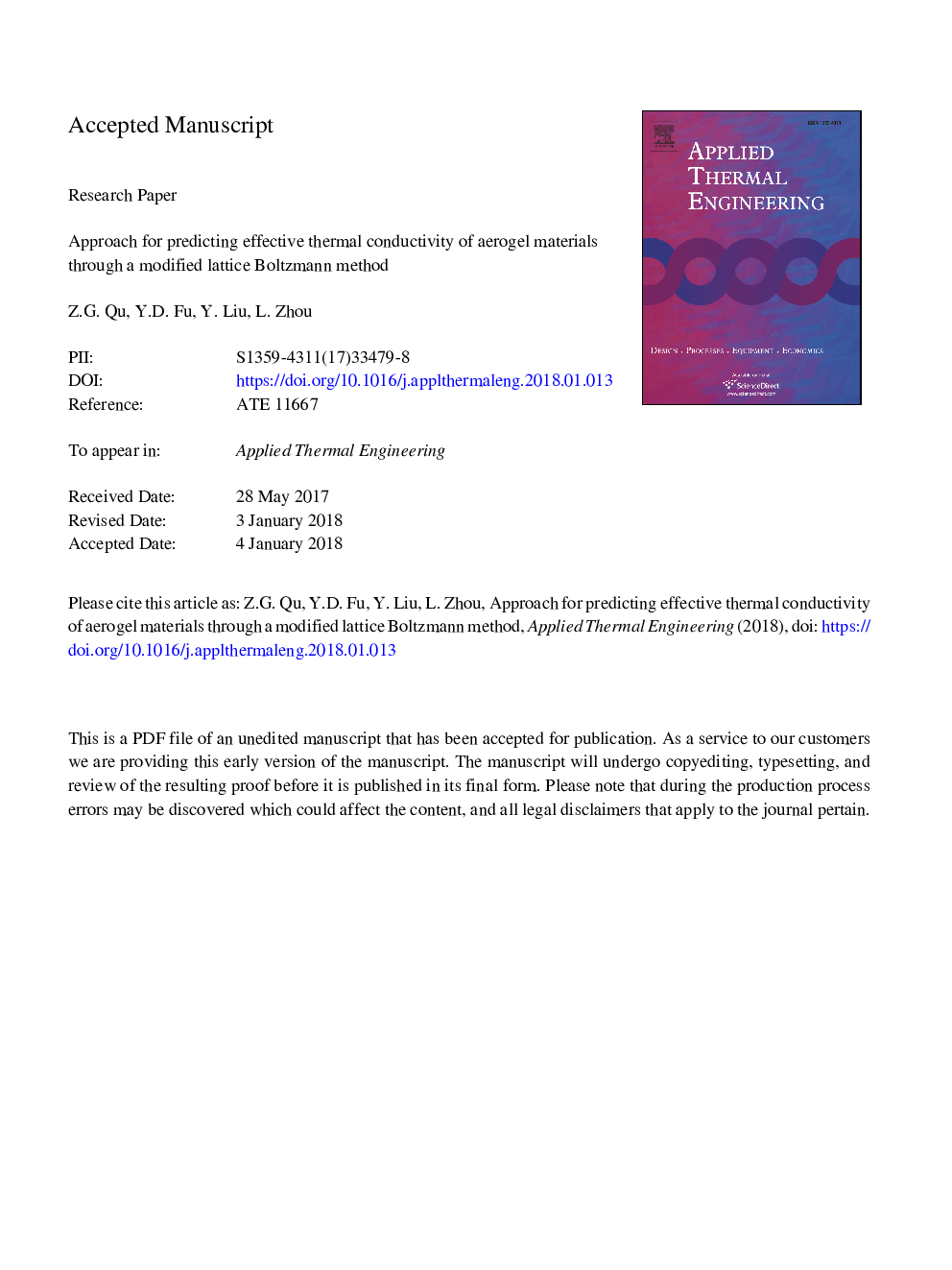| Article ID | Journal | Published Year | Pages | File Type |
|---|---|---|---|---|
| 7046116 | Applied Thermal Engineering | 2018 | 40 Pages |
Abstract
A modified lattice Boltzmann method (LBM) is established to predict effective thermal conductivity of aerogel materials for insulation performance. A stochastic generation method based on mesoscopic solid-phase growth principle is adopted to reconstruct and mimic aerogel porous structure. The modified LBM scheme introduces an additional coefficient to regulate significant differences in inherent thermal conductivity between solid and gas phases, and a converged solution is guaranteed. The modified model is validated with experimental data, and it offers improved prediction accuracy than conventional theoretical models. Investigations are performed to determine the effects of density, ambient pressure, and characteristic temperature on effective thermal conductivity. When temperature is lower than 500â¯K, an optimal density of 110â¯kg/m3 minimizes effective thermal conductivity. When temperature is higher than 500â¯K, the effective thermal conductivity decreases monotonously with increasing density. At fixed temperature, the variation in effective thermal conductivity can be divided into three typical stages based on pressure. Separate contributions of gas-phase conduction, solid-phase conduction, and radiative heat transfer are discussed and analyzed.
Related Topics
Physical Sciences and Engineering
Chemical Engineering
Fluid Flow and Transfer Processes
Authors
Z.G. Qu, Y.D. Fu, Y. Liu, L. Zhou,
